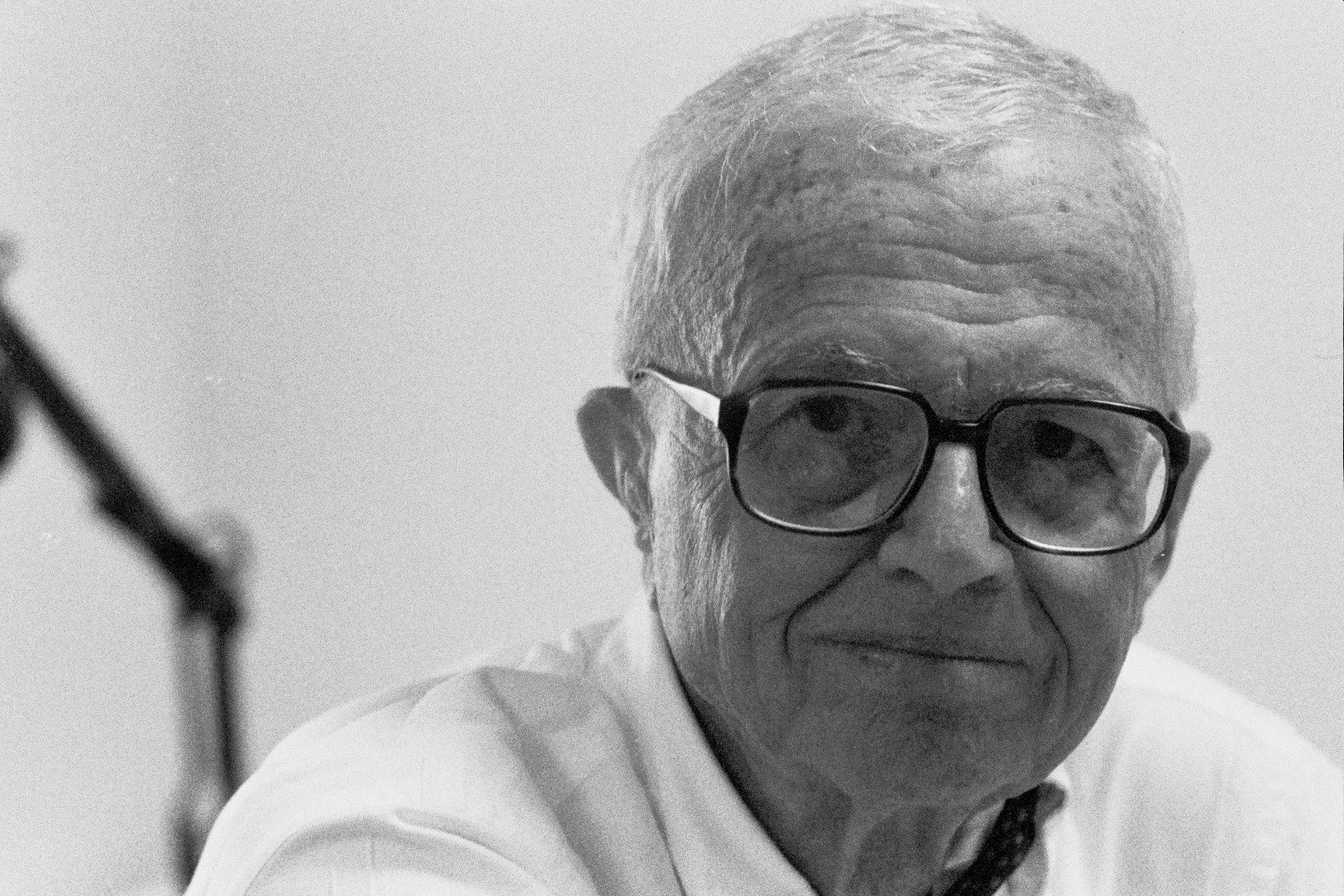The late, great William Zinsser: The man who taught old-school writers to embrace word processors
It seems obvious now. At the time, it was radical.


A free daily email with the biggest news stories of the day – and the best features from TheWeek.com
You are now subscribed
Your newsletter sign-up was successful
William Zinsser, writer, editor, and teacher of the craft of nonfiction writing, died this week at 92. Generations of writers have relied on the patient, realistic, and humane advice ("Very few sentences come out right the first time, or even the third time. Remember this as a consolation in moments of despair") of his classic book On Writing Well, first published in 1976.
At the beginning of the 1980s, Zinsser took a special interest in helping his fellow writers overcome their fear of the word processor. As a fellow former technophobe who first viewed this new contraption as a threat to his craft and way of life, he held their hands as he showed them the ropes, both in a supplemental chapter to On Writing Well as well as a separate book called Writing With a Word Processor.
His first encounter with word processing was on a visit to the New York Times newsroom. The writers sat in front of screens in a "cool and sterile environment." He was alarmed. Where was the noisy hammer of typewriters? The wadded up paper everywhere? This was not what a newsroom was supposed to look like. "The drones at their machines could have been processing insurance claims or tracking a spacecraft in orbit." It didn't look like writing to him and he wanted nothing to do with it.
The Week
Escape your echo chamber. Get the facts behind the news, plus analysis from multiple perspectives.

Sign up for The Week's Free Newsletters
From our morning news briefing to a weekly Good News Newsletter, get the best of The Week delivered directly to your inbox.
From our morning news briefing to a weekly Good News Newsletter, get the best of The Week delivered directly to your inbox.
But he realized this was the way forward whether he liked it or not and finally purchased a machine for himself. Then he started to proselytize to the anti-word processing gang, who argued that it would make writing too impersonal and robotic, or that it was simply too difficult to learn.
Zinsser explained that he was "a liberal arts type, with all the hang-ups that come out of that tradition — and also many of the snobberies" who had come around to the new way of life. He had thought that "writing at a terminal would involve whole new mental processes — that the machine would make my writing mechanical. But it seemed quite natural."
He touted its benefits, which seem quaint today, but were pretty miraculous for a generation of writers raised in piles of crumpled paper and long hours of retyping work:
"It puts your words right in front of your eyes for your instant consideration."
A free daily email with the biggest news stories of the day – and the best features from TheWeek.com
"You can play with your writing on the screen until you get it right, and paragraphs will keep rearranging themselves, no matter how many words you change or add or cut, and you don't have to print it until it's just the way you want it."
When you want to add something, "you just type it in. The existing sentences will move to the right to make room for it, and the paragraph will regroup itself with the new material added."
"The machine will paginate your entire article, putting the same number of lines on each page, and the printer will type it while you go and have a beer."
In essence, the word processor was no threat because it was only a tool. Writing was still writing, not necessarily easier, but less burdened by busywork: "The word processor is the writer's dishwasher: It liberates you from a chore that's not creative and saps your energy and enthusiasm."
And, quite possibly, it could even make you write better: "The machine is forgiving: it invites you to take risks, to try things out, to fly a little. If the flight doesn't work, nobody will ever know — you can delete it and try something else. But at least you have stretched your muscles and your sense of possibility. Maybe next time you will soar."
I wish I could say I'm going to have a beer now while I upload this to the website, but that process goes so fast there isn't time for one. Kinda makes you long for the old days of the word processor/printer setup. A virtual, digital toast then, to William Zinsser.
Arika Okrent is editor-at-large at TheWeek.com and a frequent contributor to Mental Floss. She is the author of In the Land of Invented Languages, a history of the attempt to build a better language. She holds a doctorate in linguistics and a first-level certification in Klingon. Follow her on Twitter.
-
 Jeff Bezos: cutting the legs off The Washington Post
Jeff Bezos: cutting the legs off The Washington PostIn the Spotlight A stalwart of American journalism is a shadow of itself after swingeing cuts by its billionaire owner
-
 5 blacked out cartoons about the Epstein file redactions
5 blacked out cartoons about the Epstein file redactionsCartoons Artists take on hidden identities, a censored presidential seal, and more
-
 How Democrats are turning DOJ lemons into partisan lemonade
How Democrats are turning DOJ lemons into partisan lemonadeTODAY’S BIG QUESTION As the Trump administration continues to try — and fail — at indicting its political enemies, Democratic lawmakers have begun seizing the moment for themselves
